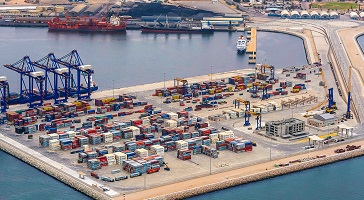
Overall construction activity expected to be subdued in the coming months – Expert

Despite the number of approved building plans exceeding its 6-month average in Windhoek and Swakopmund, overall construction activity is expected to be subdued in the coming months as some projects are delayed due to rising building material costs, Economist Theo Klein said.
In Windhoek, a total of 247 building plans were approved during March 2022 (the same as March 2021), compared to 234 plans in the prior month, while Swakopmund saw a total of 34 building plans were approved during March 2022, compared to 72 in the prior month and 83 in March 2021.
The approved plans in Windhoek have a combined value of N$130.2 million and include additions (133 plans), commercial (2 plans), houses (63 plans), walls (15 plans) and pools (2 plans).
“Much of construction activity in Windhoek would likely be property renovations/additions as the value of additions plans exceed new housing projects. A general increase in additions activity has been noted since the pandemic outbreak and it seems interest to upgrade homes remain elevated,” Klein, an Economist at Simonis Storms said.
Klein further notes that construction activity at the coast is likely to be focused on new residential properties, with the latest statistics indicating this might be in the lower segment of the property market.
“Based on the value of approved plans and number of projects (in Swakopmund), we estimate an average N$875,000 per residential property that was approved during March 2022,” Klein added.
According to the preliminary national accounts, the construction sector (2% of GDP) contracted by
10.2% in 2021, compared to -11.8% in 2020. The Bank of Namibia forecasts a 2% contraction in the construction sector for 2022, followed by a 2.5% growth in 2023.
“Gross fixed capital formation (net investment) in the construction sector has increased by 1.5% in real terms on an annualised basis since 2017. However, net investment in buildings and construction works has declined by 3.9% and 8.3% on an annualised basis in the last 5 years.
No new capital projects from the government will be undertaken in the current financial year as per the latest budget, meaning that growth in the construction sector will have to rely on the private sector.
However, Klein said, the private sector is faced with rising building material costs, rising interest rates and rising fuel and food prices, which add to operational costs for contractors.
“Several large projects in Namibia’s main urban centres will provide some growth to the sector, together with low base effects, the contraction in 2022 might be lower than that experienced in 2021,” Klein said.










































